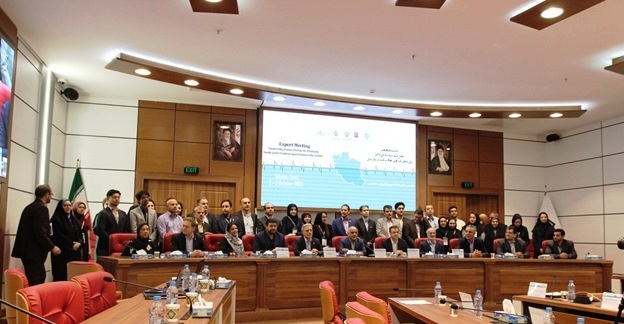The International Expert Meeting on Science, Policy Making and Implementation to Enhance Health System Resilience against Floods

The meeting was hosted by the TUMS School of Public Health and Department of Health in Disasters and Emergencies, and was opened on Oct 1st with a greeting and introduction of attendees by Dr. Akbari Sari, the Dean of the School of Public Health. Then, Dr. Ali Ardalan, the Regional Emergency Health Advisor at the World Health Organization (WHO) in the Eastern Mediterranean (EMRO), read the message from Dr. Al-Mandari, Director of the WHO in the Eastern Mediterranean.
“EMRO declares its support for preventive planning due to Iran's specific conditions and the high number of disasters. One of these disasters was the flood that recently affected large areas of the country; several other countries in the region have also experienced this problem”, says Dr. Ardalan of TUMS School of Public Health.
From mid-March to April 2019, flash flooding affected large parts of Iran, most severely in Golestan, Khuzestan, Lorestan and other provinces. About 1,900 cities and villages across the country were damaged. At least 85 people died. Large dams were overflowed causing evacuation of many villages. Health sector damage assessment stated that 892 out of 7371 were damaged. Flood water led to extensive destruction of infrastructure, and both public and private property, livestock, agriculture and livelihoods, with estimated damage of 8 billion dollars.
The main objective of this meeting was to share the knowledge and experience of the relevant organizations to this topic in order to build a resilient health system, which provides quality healthcare that is acceptable, accessible and available to all, particularly to the most vulnerable.
General challenges to build a resilient health system in Iran were discussed in this meeting by participants. They included insufficient political commitment, poor role of health system in policy making, absence of social trust, shortage of regulations, need for revision and integration of the present national laws, lack of accurate, lack of unified and integrated information system and problem in financial policy making.
To address these challenges, a list of suggestions was presented by the participating bodies at the end this two-day meeting as follows:
A- Increase the public awareness and community preparedness to floods,
B- Improve national disaster risk management framework and platform,
C- Linking between science- policy-practice is essential,
D- Improve the Health Information System (HIS),
E- Review laws and regulations,
F- Ensure good cooperation with different stakeholders.
Since Iran is located in a flood prone region, putting effective strategies and arrangements in place to deal with the floods are absolutely essential, and the outcomes of such meetings may have to be pursued by policy makers and regulators.

Your Comment :